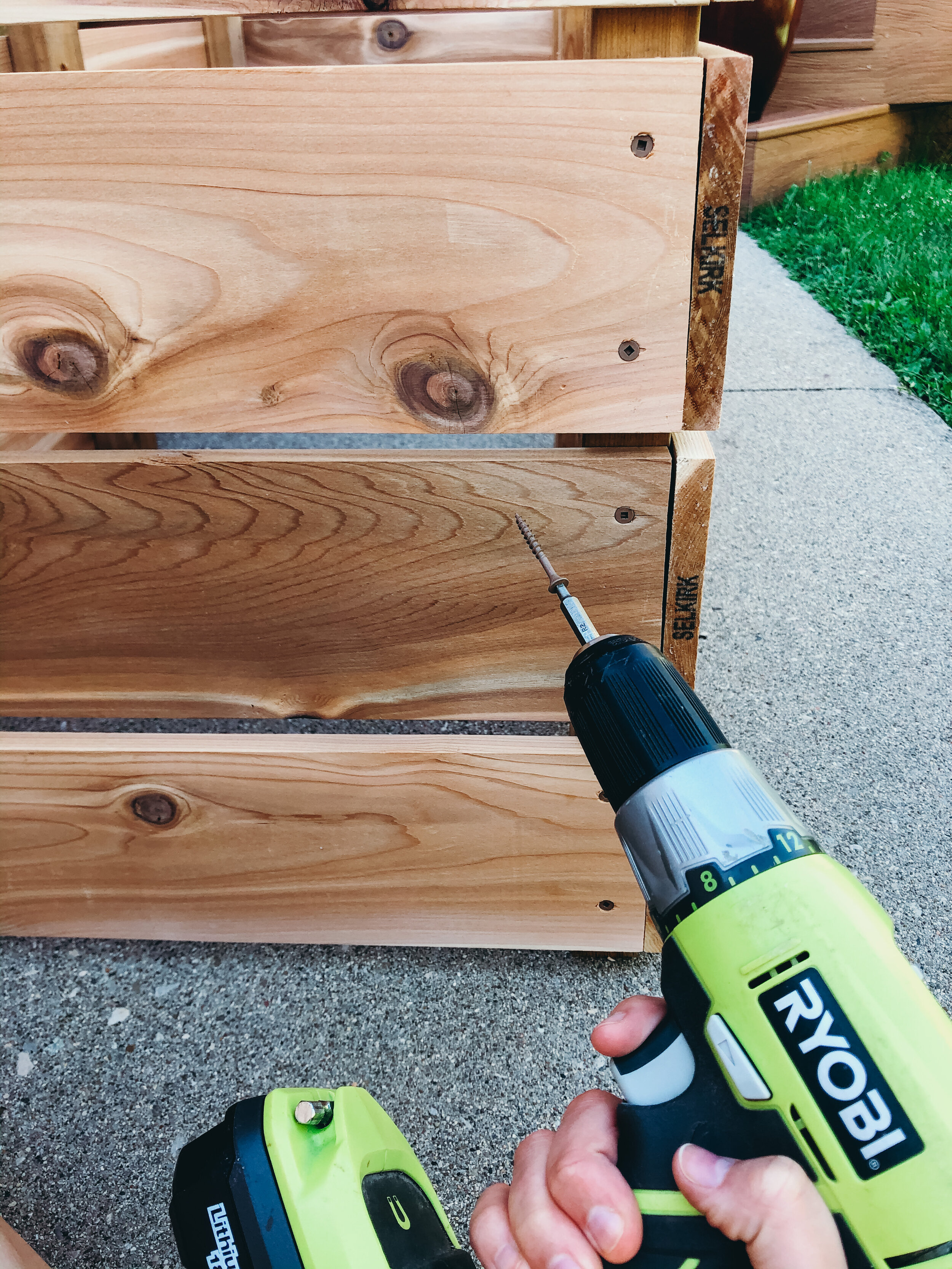We Built a Composter!
For almost my entire childhood, my family had our own backyard composter. It helped to keep organic waste out of our garbage, and we would use it to help fertilize our vegetable garden. At some point the bin broke, and our city was onto the Green Bin Program, so we put off rebuilding ours.
However, as we’ve significantly reduced the amount of waste we send to the landfill, our Green Bin has never been more full. To keep our waste even more local and to help our garden flourish, we decided it was time to take matters back into our own backyard. Read more on the benefits of composting here.



We used natural cedar for our bin - the oils in natural cedar help to preserve the wood for longer. If you are making your own composter or garden bed, it’s extremely important to use untreated wood. This is because treated wood can leach harmful chemicals into your garden or compost pile. The Government of Canada has some helpful guidelines on this here.
We built a simple rectangular bin with a split lid. We are planning to add a divider down the middle, so that we can have two separate piles going at once. This will allow us to continually add organic waste to one pile, while allowing the other pile to break down.
Thinking of making your own compost? Amazing! Here are some tips that might help you:
You don’t need to make it fancy. If you don’t have building materials or tools, you can use something you may already have, like a cardboard box, garbage can, or an old container. Check out this list for more ideas!
Make a list of what will be allowed in your backyard compost. For example, we’ve decided to only put plant matter into our compost (yard waste, fruit and vegetable scraps). Those in my family that consume animal products will be putting animal waste like bones in the Green Bin to keep animals out of our garden.
If you live in an apartment, or are unable to compost in your own home: Unfortunately, many people in apartments and condos are unable to compost due to building rules or collection access. This acts as a major barrier for those who want to reduce their waste. If you want to start composting your organic waste, create an account with ShareWaste or other composting communities in your region and see if there’s any local collectors near your home. You can also check in with vendors at your local farmer’s market to see if any of them are collecting extra scraps.
If you’re looking for inspiration on bringing composting to your building, checkout this story from an Ottawa condo resident.Feel free to contact me if you have any questions. Happy composting! 🌱



